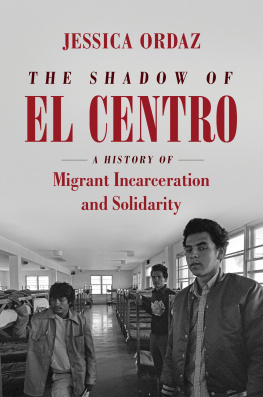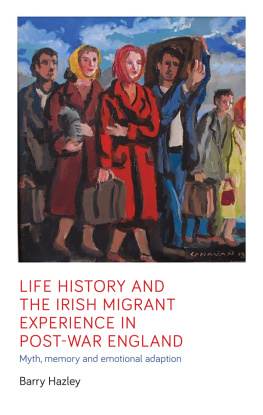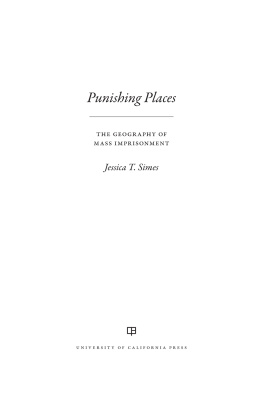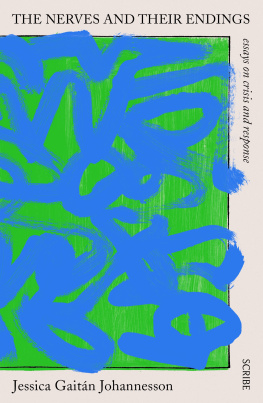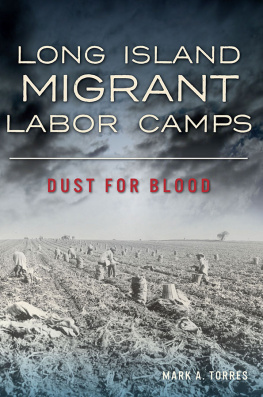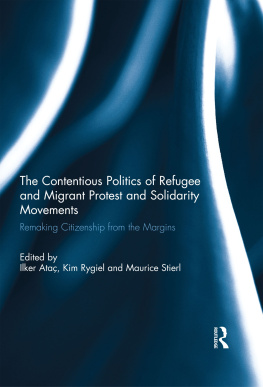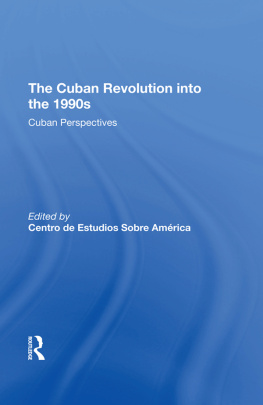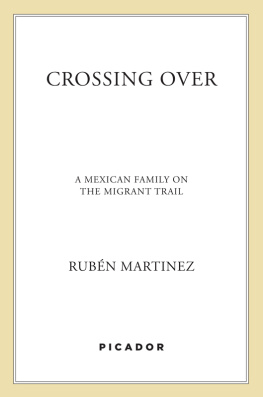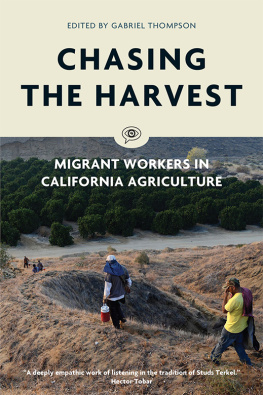JUSTICE, POWER, AND POLITICS
Coeditors
Heather Ann Thompson
Rhonda Y. Williams
Editorial Advisory Board
Peniel E. Joseph
Daryl Maeda
Barbara Ransby
Vicki L. Ruiz
Marc Stein
The Justice, Power, and Politics series publishes new works in history that explore the myriad struggles for justice, battles for power, and shifts in politics that have shaped the United States over time. Through the lenses of justice, power, and politics, the series seeks to broaden scholarly debates about Americas past as well as to inform public discussions about its future.
More information on the series, including a complete list of books published, is available at http://justicepowerandpolitics.com/.
This book was published with the assistance of the Thornton H. Brooks Fund of the University of North Carolina Press.
2021 Jessica Ordaz
All rights reserved
Set in Merope Basic by Westchester Publishing Services
Manufactured in the United States of America
The University of North Carolina Press has been a member of the Green Press Initiative since 2003.
Library of Congress Cataloging-in-Publication Data
Names: Ordaz, Jessica, author.
Title: The shadow of El Centro : a history of migrant incarceration and solidarity / Jessica Ordaz.
Other titles: Justice, power, and politics.
Description: Chapel Hill : The University of North Carolina Press, [2021] | Series: Justice, power, and politics | Includes bibliographical references and index.
Identifiers: LCCN 2020037085 | ISBN 9781469662466 (cloth) | ISBN 9781469662473 (paperback) | ISBN 9781469662480 (ebook)
Subjects: LCSH: El Centro Immigration Detention Camp. | El Centro Service Processing Center. | Detention of personsCaliforniaEl CentroHistory20th century. | Illegal aliensAbuse ofCaliforniaEl CentroHistory20th century.
Classification: LCC JV6926.E43 O73 2021 | DDC 365/.979499dc23
LC record available at https://lccn.loc.gov/2020037085
Cover illustration: Sleeping barracks at El Centro, 1985. Robert Gumpert Photograph Archive, The Bancroft Library, University of California, Berkeley. Photo by Robert Gumpert, used by permission of the photographer.
Parts of chapter 4 were previously published in a different form as Migrant Detention Archives: Histories of Pain and Solidarity, Southern California Quarterly 102, no. 3 (2020): 25073.
Chapter 5 was previously published in a different form as Protesting Conditions inside El Corraln: Immigration Detention, State Repression, and Transnational Migrant Politics in El Centro, California, Journal of American Ethnic History 38, no. 2 (2019): 6593.
Acknowledgments
My interest in telling this history stemmed from a place of silence. When I was a child, conversations about my fathers apprehensions, detentions, and deportations quickly ended. I hope that in highlighting the experiences of detained migrants, the stories of people like my father will be understood within a narrative that affords them dignity, after decades of feeling shame for attempting to maneuver in a system not of their own making.
Despite having been personally impacted by immigration enforcement, I did not come to this research project until having multiple conversations with my mentor and advisor, Dr. Lorena Oropeza. We discussed the possibility of exploring the history of immigration detention centers and the urgent need for such a project. She provided excellent guidance and feedback. Dr. Lisa Materson and Dr. Cecilia Tsu also played a significant role in shaping the early stages of my research. I am extremely thankful for their guidance, mentorship, and support.
While scholars played a central role in developing my research questions, I would not have been able to write this book without the multiple agencies and institutions that generously funded my work. My research travel was made possible with the support of the following agencies: the University of California California Studies Consortium (UCCSC), UC Davis History Department, UC Davis Hemispheric Institute of the Americas (HIA), UC Davis Office of Graduate Studies, UC Davis Institute for Social Sciences, the Society for Historians of American Foreign Relations (SHAFR), University of California Institute for Mexico and the United States (UC MEXUS), Immigration and Ethnic History Society, University of Washington, Duke Universitys David M. Rubenstein Rare Book and Manuscript Library, Summer Institute on Tenure and Professional Advancement (SITPA), and the University of Colorado, Boulder. This funding was crucial in obtaining the necessary archival sources to write this story.
Countless archivists assisted me as I searched for materials relevant to my study. I am very appreciative of them. From Mexico City, Washington, D.C., San Diego, and New Mexico, the aid of librarians and research specialists was critical in my acquiring INS records and documents from formerly detained migrants. My research assistant at UC Davis, Jasmine Marie Stoltzfus, helped me sort through these primary sources, and she conducted microfilm research for this project. I am also grateful for the various immigration lawyers and community activists who allowed me to interview them. Their experiences and knowledge helped me piece together this narrative. I want to thank Montserrat Haydee Mendivil for providing lodging during various research trips to Los Angeles. Your friendship and support made what could have been isolating occasions fun and enjoyable.
The time I spent at the University of Washington was of particular importance, as the Andrew W. Mellon Sawyer Seminar Postdoctoral Fellowship on Capitalism and Comparative Racialization provided me with the time and space to draft the manuscript. The fellowship also provided me with the opportunity to get extensive feedback from scholars and graduate students, including Megan Ming Francis, Jack Turner, Sophia Jordan Wallace, Moon-Ho Jung, Chandan Reddy, Roneva Keel, and Vanessa Quince. At the University of California, Berkeley scholars Ral Coronado, Marla Ramrez, Brian DeLay, Christian Paiz, and David Montejano read and commented on the entire manuscript as part of the Bancroft Seminar on Interdisciplinary Latina/o History. They provided invaluable feedback as I prepared to find a press best suited for my project. I also want to recognize the select number of scholars who read and commented on sections ofand in some cases, the entiremanuscript once it was close to completion: Vicki Ruiz, David Hernandez, and Miroslava Chvez-Garca.
I am extremely grateful to the colleagues and friends I made while working on this research project. Thank you to Melissa J. Gismondi, Marco Antonio Rosales, Anne Prez, Carrie Alexander, Natalie Collin (deceased), Jessica Blake, Stephen Cox, Pablo Silva-Fajardo, Andrew Higgins, Juan Medel-Toro, Lily Hodges, Patricia Palma, Fiona Viney, Laura Tavolacci, Rajbir Singh Judge, Abby Judge, Diana Johnson, Griselda Jarqun, Melani Peinado, Genesis Lara, and Joel Virgen for sharing writing space, intellectual conversations, and camaraderie in Davis, California. While conducting archival research throughout Mexico and the United States I had the good fortune of meeting Daniel Morales, Amie Campos, Kevan Antonio Aguilar, Raquel Escobar, Jorge Ramrez, Alina Mndez, Rachel Oriol, Araceli Lopez, Hrafnkell Plsson, and Michael Damien Aguirre. In Colorado, Em Alves, Charlie Beard, Lauren DeCarvalho, Asif Zaman, Diana Aldapa, and Carlos Jimnez have become an incredibly important source of support and friendship.

